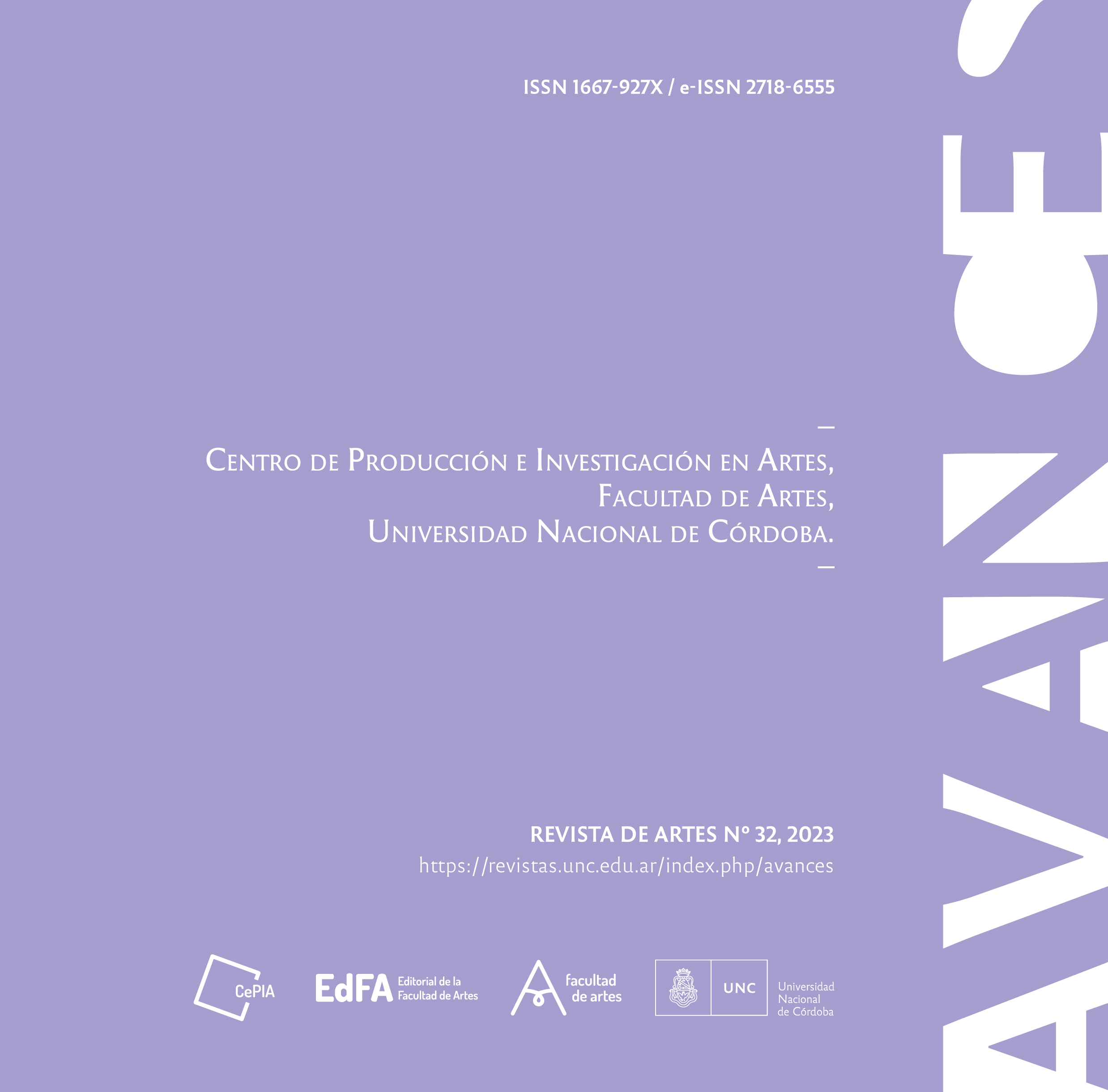Party, sexual dissidence and community in the post-pandemic era
Keywords:
Party, Community, Feminism, Pandemic, PerformanceAbstract
Based on an empirical description of the practice Entrenar la fiesta by Grupo ORGIE and a genealogical approach to the meaning of the festival in the history of Western dance, the following article proposes three possible interpretations. First, we argue that the performance conducts a disruptive political intervention on the moral economy of affects. In this sense, it engages in a reflection on the festival as a political ritual opposed to the symbolic apparatus of representation. However, Entrenar la fiesta goes beyond the sense of a demonstration on behalf of sexual minorities to propose new ways of understanding life in common through a choreographic experience.
Downloads
References
Arbeau, T. (1988). Orchésographie. Traité en forme de dialogue par lequel toutes personnes peuvent facilement apprendre et pratiquer l’honnête exercice des danses. Dominique Guéniot Ed.
Bajtin, M. (1987). La cultura popular en la Edad Media y el Renacimiento. Alianza.
Bardet, M. (2019, 30 de agosto). La fiesta incontrolable. Página 12. https://www.pagina12.com.ar/215297-la-fiesta-incontrolable.
Butler, J. y Athanasiou, A. (2017). Desposesión: lo performativo en lo político. Eterna Cadencia.
Castro Gomez, S. (2012). Sobre el concepto de antropotécnica en Peter Sloterdijk. Revista de Estudios Sociales, 43.
Citro, S. (2000). El análisis del cuerpo en contextos festivo rituales: el caso del pogo. Cuadernos de Antropología Social, 12.
Cooper Albright, A. (2017). The Politics of Perception. The Oxford Handbook of Dance and Politics (pp. 223-243). Oxford University Press.
Ehrenreich, B. (2007). Dancing in the Streets. A History of Collective Joy. Granta Books.
Esposito, R. (2005). Immunitas. Protección y negación de la vida. Amorrortu.
Fassin, D. (2018). Por una repolitización del mundo: Las vidas descartables como desafío del siglo XXI. Siglo Veintiuno Editores.
Foucault, M. (2004). Surveiller et Punir. Gallimard.
Franko, M. (2019). Danzar el modernismo / Actuar la política. Miño y Dávila.
Fuentes, M. (2019). Activismos tecnopolíticos. Constelaciones de performance. Eterna Cadencia.
Lang, S. (2018). Descaretizar la fiesta. Lobo Suelto. Anarquia Coronada. http://lobosuelto.com/descaretizar-la-fiesta-silvio-lang/.
Lang, S. (2019). Manifiesto de la práctica escénica. El tiempo es lo único que tenemos (pp. 113-122). Caja Negra.
Lorey, I. (2013). Politics of Immunization and the Precarious Life. Dance, Politics & Co-Immunity (pp. 259-269). Diaphanes.
Manning, E. (2016). The Minor Gesture. Duke University Press.
Marin, L. (1981). Le portrait du roi. Ed. de Minuit.
Perez Royo, V. (2019). Corporalidades disidentes en la celebración. Fiesta y política en la escena contemporánea. El tiempo es lo único que tenemos (pp. 123-144). Caja Negra.
Rousseau, J. J. (2003). Lettre à D’Alembert. Flammarion.
Sloterdijk, P. (2011). Co-Immunité globale. Penser le commun qui protege. Multitudes, 45.
Starobinski, J. (1971). Jean-Jacques Rousseau, la transparence et l’obstacle. Gallimard.
Turner, E. (2012). Communitas. The Anthropology of Collective Joy. Palgrave.
Vallejos, J. I. (2020). Méreau, Rousseau et la fête dégenrée des corps dansants. Perspective, 2. http://journals.openedition.org/perspective/20897.
Filmografía
Cesatti, R. (Dir). (2012). Putos Peronistas, cumbia del sentimiento [90']. Argentina: Alucine HD
Downloads
Published
Issue
Section
License
Copyright (c) 2023 Juan Ignacio Vallejos

This work is licensed under a Creative Commons Attribution-NonCommercial-ShareAlike 4.0 International License.





















